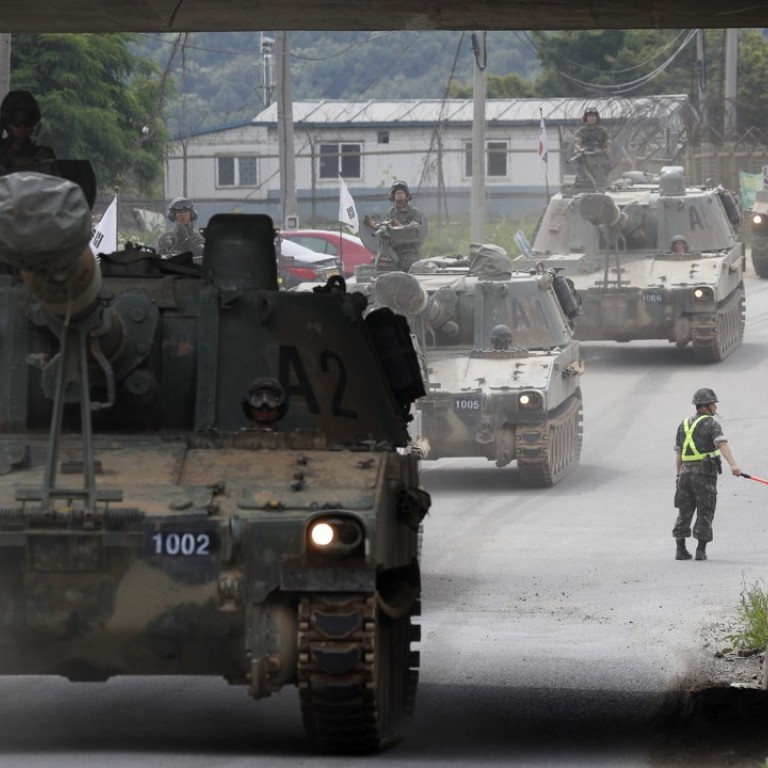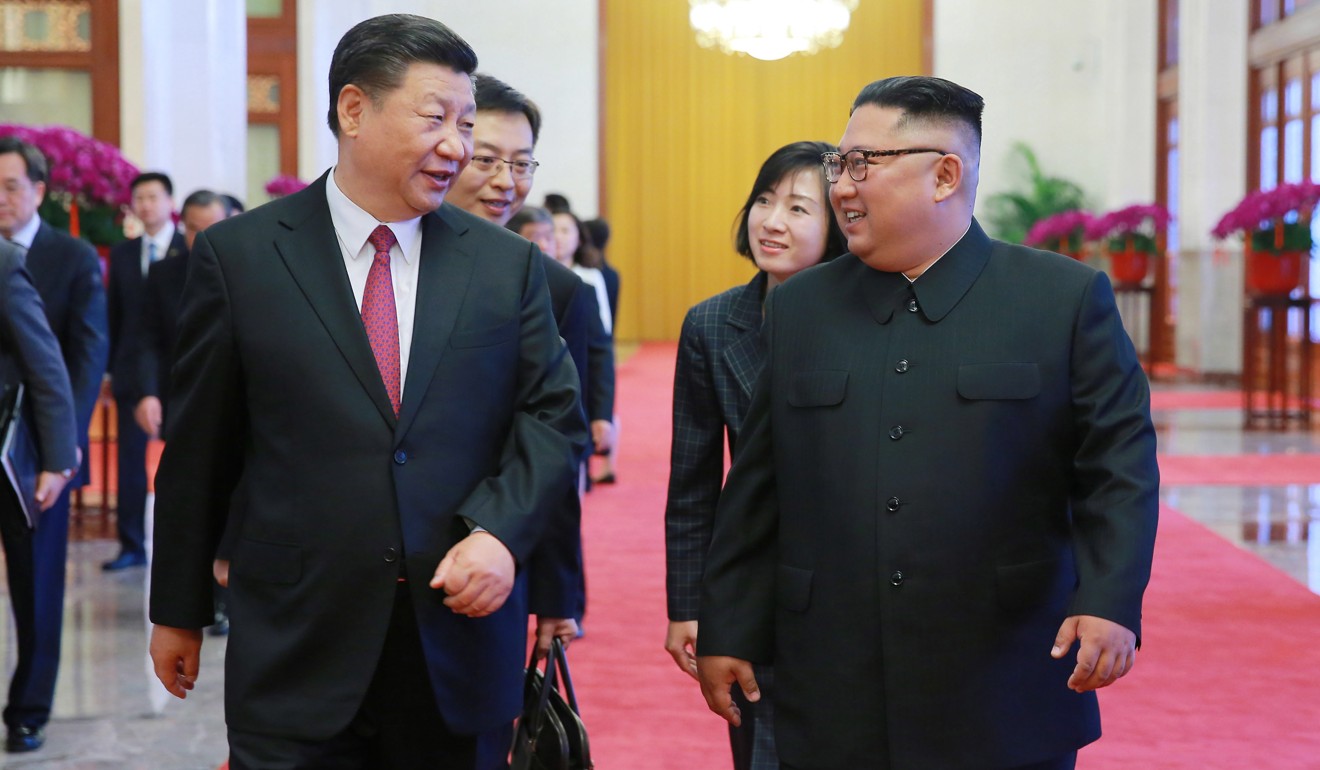
If the US military withdraws from Korea, China will be a big loser
Michael Heng says while Beijing has good reason to be wary of American hegemony in the region, it must realise that a US military withdrawal would encourage unwanted developments – nuclear-armed neighbours in a unified Korea and Japan
Somehow, Trump has forgotten that, in politics, interests are more decisive than personal relationships. But that is understandable, as he is more a showman than a politician.
Watch: What’s in the Trump-Kim agreement
As New York Times columnist Nicholas Kristof has observed, there was “nothing about North Korea freezing plutonium and uranium programmes, nothing about destroying intercontinental ballistic missiles, nothing about allowing inspectors to return to nuclear sites, nothing about North Korea making a full declaration of its nuclear programme, nothing about a timetable, nothing about verification, not even any clear pledge to permanently halt testing of nuclear weapons or long-range missiles”.
Why is the announcement so disturbing? Consider the following scenario. Supreme Leader Kim, aware that Trump’s current term of office would end in 2½ years, could embark on a cosmetic programme of denuclearisation, obliging Trump to respond by withdrawing the US military presence in South Korea.
Meanwhile, Trump’s successor could be boxed in by his vague agreement with Kim.
Watch: US and South Korea conduct joint military drills in September last year
The biggest loser in the new situation would be South Korea. A nuclear-armed North Korea would easily impose demands on a South Korea without American military protection. The demands could range from reunification on Pyongyang’s terms to generous economic assistance from Seoul.
A US departure from South Korea would weaken South Korea to the extent that it might have to give in to the terms dictated by North Korea on reunification. A reunified Korea may well turn out to be a second reunified Vietnam, but with nuclear warheads. Taking either a short or long view of history, there is very little reason to believe that such a Korea would prove to be a friendly neighbour to China.

The recent summit in Singapore has not produced any substantive conditions to inspire real confidence that Kim will follow through on his claimed denuclearisation programme. North Korea’s failure to dismantle its nuclear weapons would represent a persistent nuclear threat on China’s doorstep. However, this is contrary to the view expressed by retired US Navy admiral James Stavridis, in a Bloomberg article: “For Beijing, the best outcome would be an agreed framework that puts off any actual relinquishment of North Korea’s nuclear weapons into the distant future. This will ensure the long-term survival of the Kim regime and the continuation of a divided peninsula.”
A series of missteps in the wake of the Singapore summit could lead to northeast Asia degenerating into a powder keg
Added to this is the possibility of the emergence of Japan as a nuclear power in the wake of a US military withdrawal from South Korea. Japan, with its remarkable technological base, can rebuild its military to beyond its proclaimed self-defence needs and produce more deadly warheads and powerful delivery systems than North Korea within a short period.
Beijing is right to be wary of the hegemonic schemes of Uncle Sam, especially in view of the latter’s track record during the cold war. But that does not mean a total US military withdrawal from South Korea and Japan would always be in China’s best interests.
The fact of the matter is that US hegemony has produced two benign by-products for China. Number one is that Japan has stuck very close to Article 9 of its constitution and remains non-nuclear. Number two is that the US foiled attempts by Chiang Kai-shek to build nuclear bombs in Taiwan.
The Chinese have a wise saying, ju an si wei, which means to be on guard against possible dangers in times of peace. A series of missteps in the wake of the Singapore summit could lead to northeast Asia degenerating into a powder keg. That is certainly not in the interests of China and the rest of Asia or, for that matter, in the interests of world peace.
Michael Heng is a retired professor who has held academic appointments in Australia, the Netherlands, and at six universities in Asia

